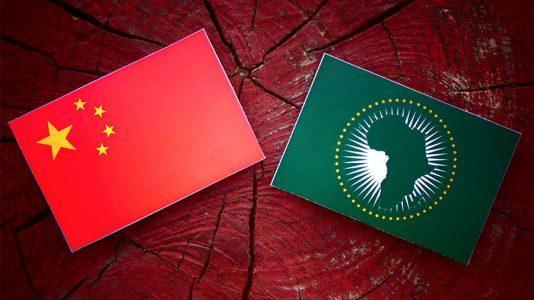Is China's Belt and Road Initiative good for Africa? - Dispatch Weekly
September 30, 2022 - Reading time: 6 minutes

The African Union has long been a target of Chinese spying, with Beijing using various methods to collect information on the organization. One way China gathers intelligence on the African Union is by using so-called “tigers.” Tigers are Chinese nationals who work in Africa under the cover of being businessmen or trade representatives. While in Africa, they collect information on the AU for Beijing. In addition to tigers, China also uses its embassies and consulates in Africa to spy on the AU. For example, Chinese diplomats have been caught trying to bribe AU officials for information. In one instance, a Chinese diplomat offered an AU official $50,000 for confidential documents. Why does Beijing bother to spy on the African Union? The answer lies in China’s growing economic and political interests in Africa. By gathering intelligence on the AU, China can better understand how to further its own interests in the continent.
The Belt and Road Initiative
China is Africa’s largest trading partner, and the two continents have enjoyed close economic ties for many years. Recently, China has been increasingly investing in Africa through its Belt and Road Initiative (BRI).
The BRI is a massive infrastructure investment program that spans over 60 countries and involves billions of dollars of Chinese investment. Through the BRI, China is hoping to boost trade and investment between Africa and China, as well as improve infrastructure on the African continent.
Critics of the BRI say that it is a way for China to gain political influence in Africa, and that many of the projects financed by the initiative are not financially viable. However, supporters argue that the BRI will bring much-needed development to Africa and help to reduce poverty on the continent.
Why China is interested in Africa
There are many reasons why China is interested in Africa. One reason is that Africa is a potential market for Chinese goods and services. Africa is also rich in natural resources, which China needs to fuel its economic growth.
China’s involvement in Africa goes back many centuries. In recent years, however, China’s economic and political presence in Africa has increased dramatically. This increase has been driven by China’s need for resources and markets, as well as its desire to build good relations with African countries.
Some African leaders have welcomed China’s involvement, seeing it as an opportunity to boost their own country’s development. Others have been more critical, accusing China of exploitation and of not doing enough to help Africa’s poorest people.
Whatever the debate, there is no doubt that China’s role in Africa is growing and is likely to continue to do so in the years ahead.
The concerns of African leaders
Since the start of the African Union, China has been increasingly interested in the organization and its role in Africa. In particular, Beijing has been keen to learn about the AU’s plans and activities, as well as to gather intelligence on Africa’s leaders.
African leaders, for their part, have become increasingly suspicious of China’s motives. Some believe that Beijing is using its economic clout to gain influence over the AU, while others worry that Chinese intelligence gathering could be used to exploit Africa’s vulnerabilities.
Whatever the truth may be, it is clear that China’s presence in Africa is growing and that African leaders are taking notice. As the AU continues to play a key role in shaping Africa’s future, it will be interesting to see how China’s relationship with the organization develops.
The benefits of Chinese investment
China has been a major investor in Africa for many years, and its investment has been crucial to the continent’s development. Chinese investment has helped to build infrastructure, create jobs, and improve living standards.
However, there have been concerns about the motives behind China’s investment in Africa. Some have accused China of trying to exploit Africa’s resources or of engaging in neocolonialism.
Recent allegations that China has been spying on the African Union have added to these concerns. However, it is important to remember that China’s investment in Africa has brought many benefits to the continent.
Chinese investment has helped to build much-needed infrastructure, such as roads, railways, and ports. This infrastructure has created jobs and improved connectivity between African countries. It has also made it easier for African businesses to trade with China and other countries.
China’s investment has also helped to improve living standards in Africa. Chinese companies have built hospitals, schools, and housing developments. Chinese aid has also contributed to the fight against disease and poverty in Africa.
Despite recent allegations of spying, it is important to remember that China’s investment in Africa has brought many benefits to the continent.
The downside of Chinese involvement
There are a number of potential downsides to China’s involvement in Africa. One is that China could be using its economic clout to gain political influence in the region. Another is that Chinese companies may not always follow best practices when it comes to environmental and social responsibility. Finally, there is the possibility that Beijing could be using its economic engagement in Africa as a way to further its own geopolitical ambitions.
What the future holds for China-Africa relations
Looking at the current state of China-Africa relations, it is safe to say that the future looks promising. Despite some hiccups along the way, the two countries have continued to work together closely, with China providing much-needed assistance to Africa in areas such as infrastructure development and trade.
There have been concerns in recent years about China’s motives in Africa, with some accusing Beijing of trying to exploit the continent for its own gain. However, it seems that these fears are unfounded, and that China is genuinely committed to helping Africa grow and prosper.
As China’s economic and political clout continues to grow, it is likely that its cooperation with Africa will become even more important. African countries will benefit greatly from Chinese investment and expertise, and the partnership between the two regions looks set to continue growing stronger in the years ahead.

DW Staff
David Lintott is the Editor-in-Chief, leading our team of talented freelance journalists. He specializes in covering culture, sport, and society. Originally from the decaying seaside town of Eastbourne, he attributes his insightful world-weariness to his roots in this unique setting.




